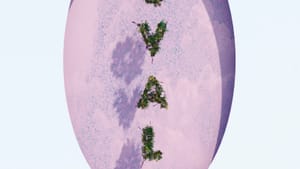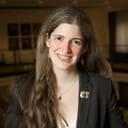Stay in the Loop
BSR publishes on a weekly schedule, with an email newsletter every Wednesday and Thursday morning. There’s no paywall, and subscribing is always free.
A better pill
‘Oval’ by Elvia Wilk

The COVID-19 pandemic has placed questions about the role and responsibility of philanthropy and government front and center. Now readers can explore the issues in fiction with Elvia Wilk’s Oval, a timely dive into the meaning of doing good and the power structures in society.
On a muddy mountain
Wilk’s novel follows Anja through the dilemmas of trying to make the world a better place while living a good life. Even though she has her own money, Anja chooses not to tap into it, trying to fend for herself on a meager salary in less-than-ideal living quarters, a burgeoning issue in Anja’s Berlin. She and her partner Louis live in an experimental eco-village, rent-free courtesy of her employer, on top of an artificial, often muddy, mountain.
But the experiment isn’t going well. There are issues with trash disposal, and parts of the couple’s house are swelling from the humidity. Anja feels an overwhelming sense of guilt that they are failing the house, and loses her bearings when a meaningless promotion at work takes her away from a job she values. She spends more and more time partying.
Anja has a sense that there are things people are supposed to do, but cannot put her finger on them. She fixates on Louis, who’s just lost his mother, but is not grieving in the way Anja expects. It turns out Louis is focused on Oval, a new pill he’s developing, which will make people more generous. Framed as a new designer drug, Oval would temporarily rewire people’s brains to hinder their self-preservation instincts, and make them feel good about giving things away.
Louis’s obsession with his new drug grows—he sees it as the solution to society’s problems. Meanwhile, the novel’s backdrop captures a sense of growing insecurity in Berlin, exemplified by a housing crisis, where people like Anja are having difficulty finding affordable and livable spaces. She’s allegedly one of the lucky ones because her company gives her free, albeit flawed, housing.
The hormone of love
The idea behind the pill in Oval is particularly timely given recent studies of oxytocin, a natural hormone associated with childbirth, breastfeeding, and human bonding. According to researcher and author Paul Zak (also known as “Dr. Love”), oxytocin also has a profound impact on a range of social and economic structures, including generosity. “Many of the social and political issues that currently seem so intractable could be solved if only we could find a way of raising people's basal levels of oxytocin,” Zak told the Guardian in 2011. Fictional Louis has apparently found a way to do just that.
What is philanthropy, really?
Oval offers a significant criticism of philanthropy, particularly as one character wonders whether the drug’s concept pushes the responsibility of a just and good society from the government onto the individual while ignoring structural problems. That resonates with a current critique of sustainability efforts that put the onus on individuals to stop using plastics and act in other ecofriendly ways, while ignoring the real need for substantive change on the part of industry giants.
As a fundraising professional and writer, I was pleasantly surprised to discover Oval, since the meaning of philanthropy is not often directly discussed in contemporary literature. At the core of the book is a much-needed critique of the state of philanthropy and the challenge of making a meaningful life. Is living sustainably in an eco-home the solution to environmental issues? Should we be looking to companies to solve our social problems? Can a drug make us better human beings? And most potently: is it really philanthropy if it’s about doing something that makes you, the giver, feel good?
What, When, Where
Oval. By Elvia Wilk. New York: Soft Skull Press, June 4, 2019. 349 pages, paperback. Get it here.
Sign up for our newsletter
All of the week's new articles, all in one place. Sign up for the free weekly BSR newsletters, and don't miss a conversation.

 Elisa Shoenberger
Elisa Shoenberger